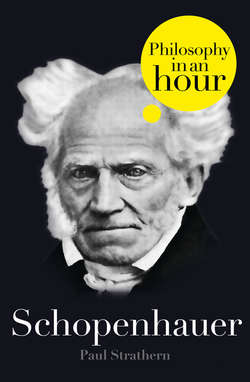Читать книгу Schopenhauer: Philosophy in an Hour - Paul Strathern - Страница 4
Introduction
ОглавлениеThe modern age of philosophy began with Descartes, who doubted everything and reduced our knowledge to one central certainty: ‘Cogito ergo sum’ (I think, therefore I am). Unfortunately he then proceeded to rebuild our knowledge, much as if nothing had happened. After this, the British empiricists Locke, Berkeley, and Hume embarked upon a similarly rigorous destructive process, claiming that our knowledge can only be based on experience. By the time Hume completed this process, human knowledge had been reduced to ruins. According to him, all we in fact experienced was a gibberish of sensations: our conclusions from these had no philosophical validity whatsoever.
This was the absurdity that famously awoke Kant from his ‘dogmatic slumbers’. Taking account of empiricism but refusing to be cowed by it, Kant constructed the greatest of all philosophical systems.
Passing from the sublime to the ridiculous, Hegel then produced his own gross system. His contemporary, Schopenhauer, was to treat this monstrosity with the contempt it deserved. Schopenhauer was to maintain a recognisably Kantian point of view with regard to epistemology (how we know the world). Kant, however, also created a moral system of surpassing beauty and elevation. For Kant, the world had a moral foundation. ‘Es ist gut’ (It is good) were said to be his last words. And in his last great work, which dealt with the purpose of the world, he concluded: ‘Two things fill the mind with ever new and increasing wonder and awe, the oftener and more steadily we reflect upon them: the starry heavens above me and the moral law within me.’ As we shall see, Schopenhauer saw it all very differently.
